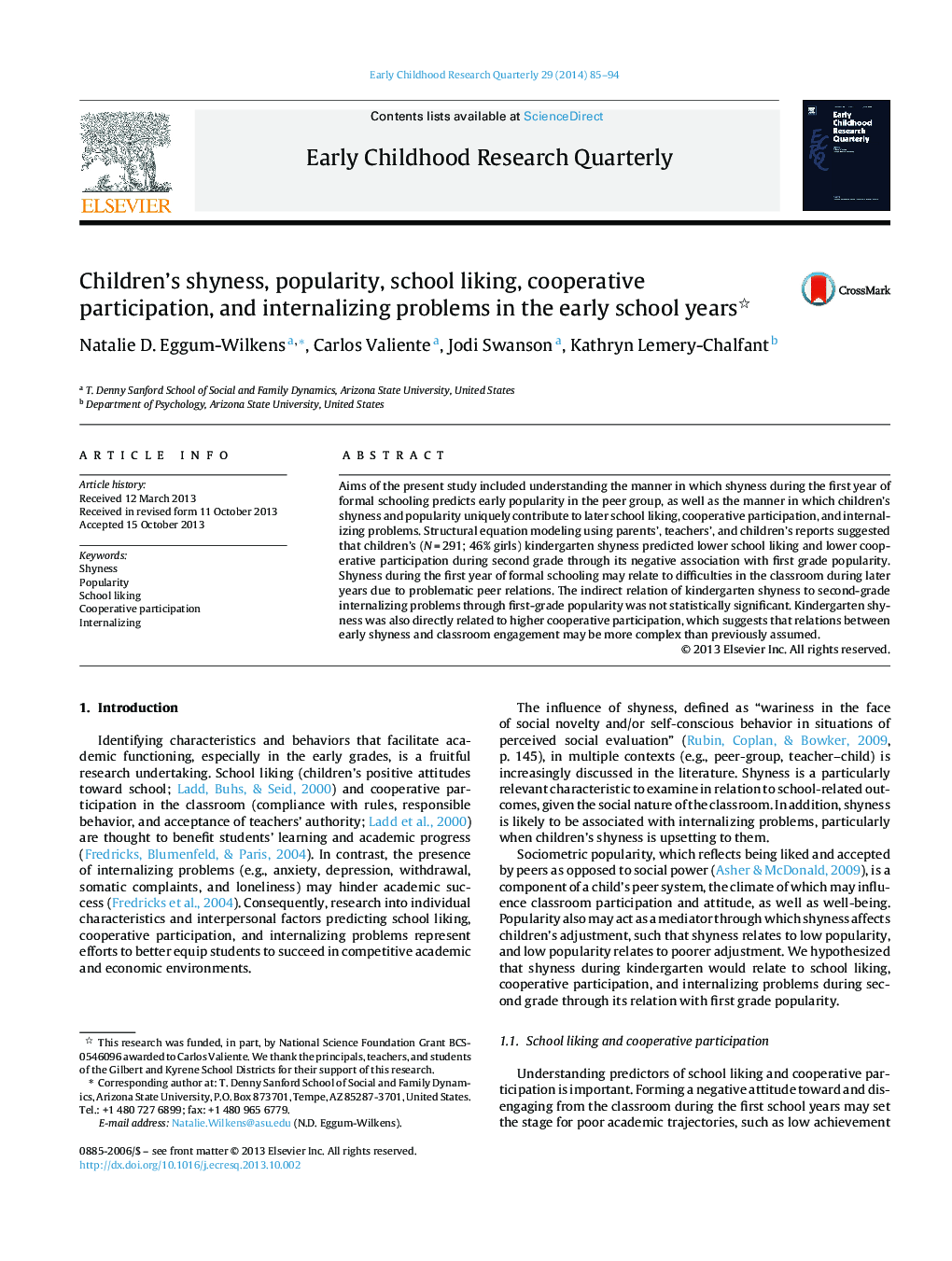| Article ID | Journal | Published Year | Pages | File Type |
|---|---|---|---|---|
| 353832 | Early Childhood Research Quarterly | 2014 | 10 Pages |
•Kindergarten shyness negatively predicted first grade popularity.•Kindergarten shyness positively predicted second grade cooperative participation.•Popularity negatively predicted second grade internalizing problems.•Popularity mediated relations between shyness and school liking.•Popularity mediated relations between shyness and cooperative participation.
Aims of the present study included understanding the manner in which shyness during the first year of formal schooling predicts early popularity in the peer group, as well as the manner in which children's shyness and popularity uniquely contribute to later school liking, cooperative participation, and internalizing problems. Structural equation modeling using parents’, teachers’, and children's reports suggested that children's (N = 291; 46% girls) kindergarten shyness predicted lower school liking and lower cooperative participation during second grade through its negative association with first grade popularity. Shyness during the first year of formal schooling may relate to difficulties in the classroom during later years due to problematic peer relations. The indirect relation of kindergarten shyness to second-grade internalizing problems through first-grade popularity was not statistically significant. Kindergarten shyness was also directly related to higher cooperative participation, which suggests that relations between early shyness and classroom engagement may be more complex than previously assumed.
